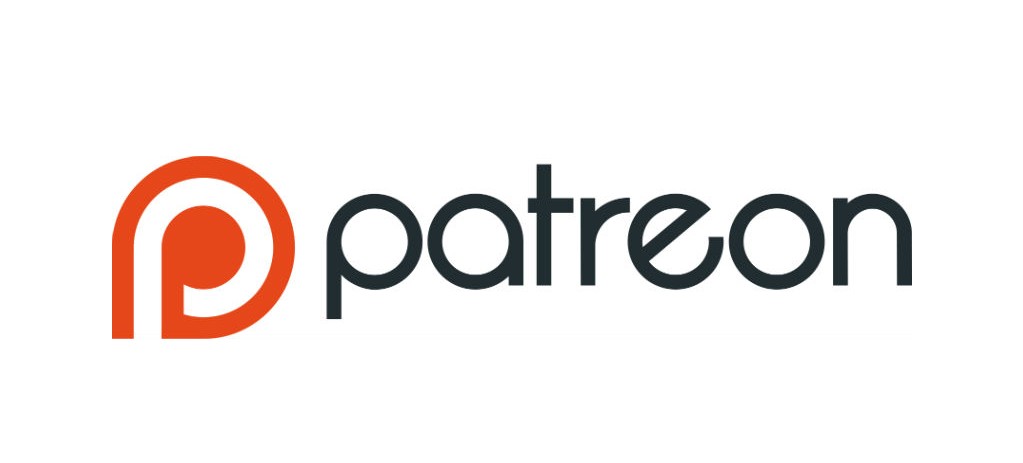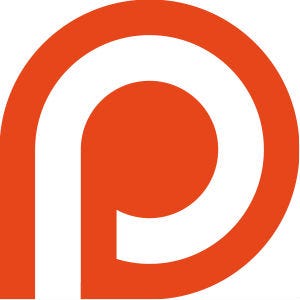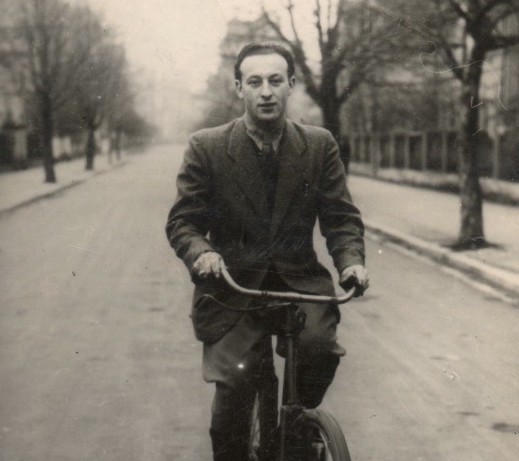Interviews
Crowdfunding Fiction: Talking With Charlie Fish, Founder Of Fiction On The Web, About Patreon

SPONSORED CONTENT PRESENTED BY PATREON
Patreon, the crowdfunding platform aimed at providing artists with regular financial support–per artwork or per month–keeps on growing. Each month, Patreon’s community of ‘creators’ receives over $3.8 million in support from over 300,000 patrons. We wanted to talk to one of those creators–Charlie Fish, founder of Fiction on the Web-to find out how he got involved with Patreon, what he’s accomplished with the site, and what advice he has for those looking for new ways to support their literary dreams.
Electric Literature: You started Fiction on the Web in 1996, which has to place you among the oldest online fiction sites around. Can you tell me about how you started out?
Charlie Fish: The Internet was so much smaller when I started. Modems made those telegraphic beeping noises, pictures loaded line by line, AltaVista was the only search engine that halfway worked. It was exciting. I wanted to have a presence on this new medium. I’d always been passionate about short stories, and I wanted a platform to share my own writing, so publishing short stories seemed a natural fit. I taught myself HTML on my Dad’s 33MHz i486, and Fiction on the Web was born.
At the time, there were only a few dozen similar websites, and most of them were genre-specific. We all linked to each other and helped promote the idea that the web was a great place to find fiction. Almost all of those old sites are gone now–Aphelion is the only one I can think of that’s still going strong.
EL: At what point did you realize you needed financial support to keep the site going? What kind of options were available to you?
CF: Fiction on the Web doesn’t cost me much money. But it costs a lot of time–I run the website entirely on my own. I read about a dozen submissions per week, from super short flash fiction to lengthy novellas, in all kinds of genres; then I edit the chosen pieces, and go through the laborious process of converting them into web publishable format. Meanwhile, I’m trying to hold down an unrelated full-time job, raise two daughters, indulge my board game obsession, keep up my film blog, and…you know…occasionally write.
I’ve been running Fiction on the Web for nearly twenty years without financial support, and I could do twenty more. But the more money the site generates, the more opportunities open up, and the more time I can justify spending. As my Patreon income increases I’ll start paying writers, publishing professionally edited anthologies, running short story competitions, spending money to promote the site, and so much more–all of which will help my deserving authors.
EL: It’s clear you put a lot of effort into connecting with your Patreon supporters. How do you find them and what, do you think, encourages them to pledge money, as opposed to just reading the stories on your site?
CF: Over the years I’ve engaged with hundreds of people through Fiction on the Web. Mostly submitting writers, but also commenters, teachers who want to use my stories in class, film students who want to adapt a story, public speaking competition contestants, magazine editors, and so on. I’ve been emailing each of these people individually, reminding them how we know each other, thanking them for their contributions, and then asking if they would be interested in pledging. I’m about a third of the way through my contacts list, and so far it seems to be working.
EL: I take it many of your patrons are writers themselves, or aspiring writers. What kind of support do you offer them?
CF: I realized a while ago that my audience is almost entirely writers; which is probably the case for most fiction zines. Only writers read short stories, just like only filmmakers watch short films. Everyone else is satisfied with the latest summer blockbuster.
Knowing that, I’ve structured Fiction on the Web and my Patreon page around things that will interest writers. Great stories first, of course, and the opportunity to get published and reach a sizeable audience. But also, for example, information about other markets, short story competitions, grants, and critiquing opportunities. My patrons get a weekly-ish message containing insights and news that is hopefully relevant to them as writers.
EL: How did you set your financial goals on Patreon? Did that process make you really think about what you wanted out of the site (and your writing), and where it was headed?
CF: Yes, absolutely. Trying to sell Fiction on the Web, and sell myself as a writer, triggered some soul searching. Why do I run a short stories website? Why do I write? Why do I need a Patreon page? These are difficult questions. For me, ultimately, the answer is: To connect with people.
I run Fiction on the Web to share great stories as widely as possible. I write to share joy, fear, heartbreak, laughter. My Patreon page allows me to engage with like-minded individuals on a personal level.
For now, my financial goals on Patreon are placeholders; examples of opportunities that more funding will unlock. I’ve been much more focused on delivering value for the various reward levels.
EL: Is it important to you that Fiction on the Web stay ad free? Why?
CF: I tried running ads once and it felt like the site was tainted. The ads didn’t raise anywhere near enough money to justify the intrusion. As a source of income, I much prefer the personal touch that Patreon provides.
EL: Probably there are a lot of writers and editors out there who think about designing a tiered support system (here’s what you get for $1/month, here’s what you get for $5/month…) and wonder how to break their content down that way. How did you manage it? Any tips for making sure your Patreon supporters feel they’re getting value?
CF: I looked at a bunch of other Patreon pages to see what kind of rewards people are offering, and there’s a huge amount of variety. The one big insight I got is this. My expectation was that it would be easy to get a lot of people pledging $1 a month as an inexpensive token of appreciation. That’s not what happens at all. In fact, fewer people tend to pledge higher amounts–the average pledge level of my patrons is over $6 per month. Turns out that people aren’t interested in tokenism–they want value.
For the lower reward tiers, you need to offer something scalable. So, for example, I send my $5-a-month patrons an audiobook of one of my stories each month. I only have to make it once, and I can send it to lots of people. But for the higher-level tiers you can consider a much more personalized service. For example, my $50-a-month patron (there’s only one at the moment!) gets his own critiquing service. Critiquing takes me a lot of time and effort, but it’s something of potentially great value that I’m happy to offer for the price.
However, I don’t think you need to worry too much about reward tiers. If you only have one thing to offer — your stories — then you only need one pledge level. Set the price right and people will pay it.
EL: Are you a supporter for any other projects on Patreon?
CF: Yes, a few, including Blake Northcott because when I was researching Patreon to work out how I wanted to present my own page I stole a lot of her ideas. Thanks, Blake!
EL: Tell me about your own writing–has it changed since you started writing with patrons, as opposed to just readers, in mind? Do you feel any added pressure?
CF: Patreon is wonderfully pressure-free. It’s like a house party with all your best buddies. You don’t have to prove anything to these people; you already know they like you, because they turned up. And when they’ve had enough, they’ll go home. So no, I don’t feel any pressure to write differently for my patrons — in fact I’m excited to share stuff with them.
EL: Do you find that readers engage with the material in a different way when they’re also patrons?
CF: For me, the most valuable contribution to Fiction on the Web that anyone can make is to read and comment on the stories. Reader comments are the lifeblood of the site. If a reader had to choose between pledging on Patreon or commenting, I would always prefer commenting.
I think that being a patron helps give people a sense of ownership, maybe even pride, over the site — and to my endless delight some of my patrons are also among the most prolific commenters.
Learn more about Patreon and how writers are using the site here.










